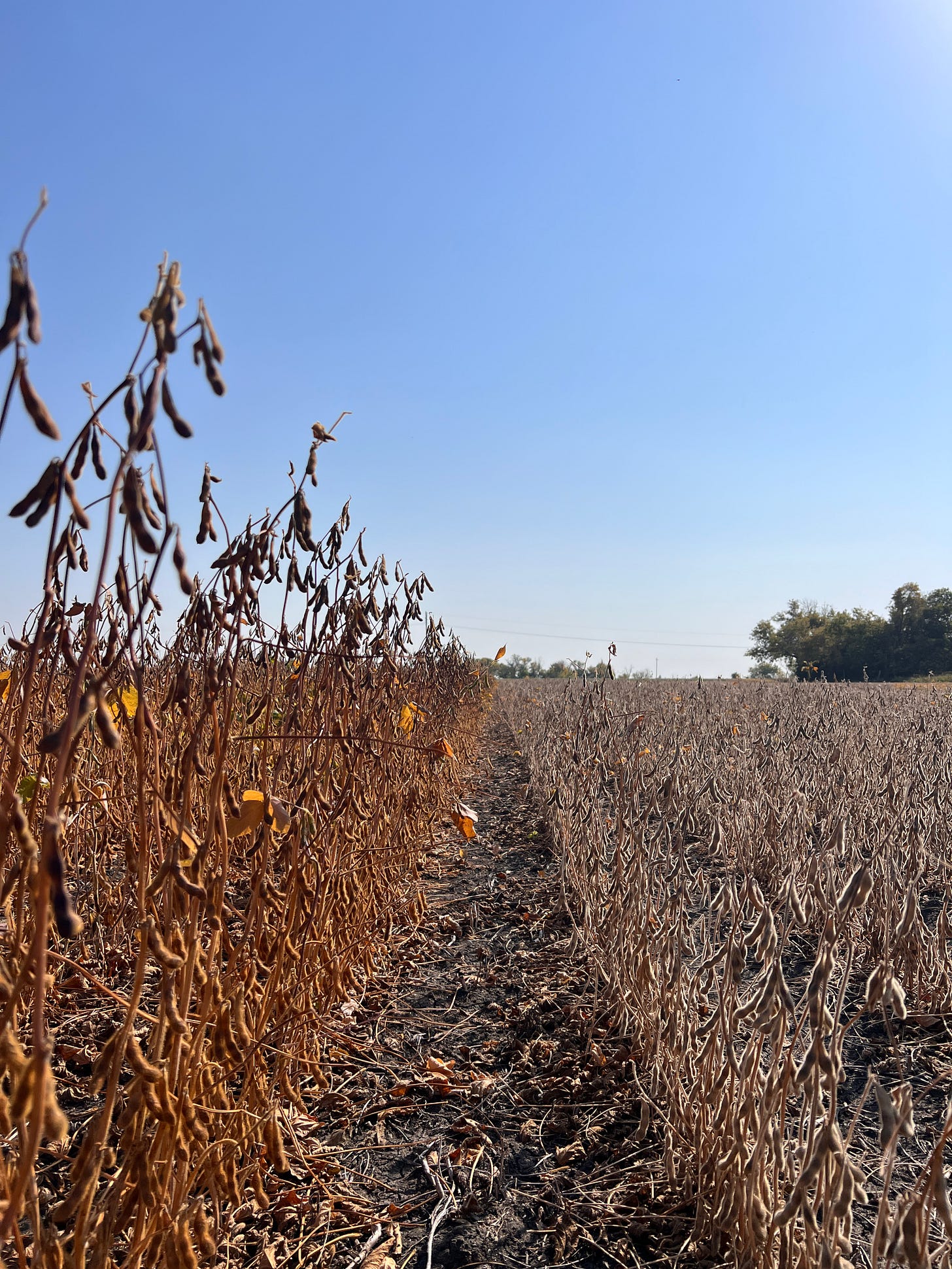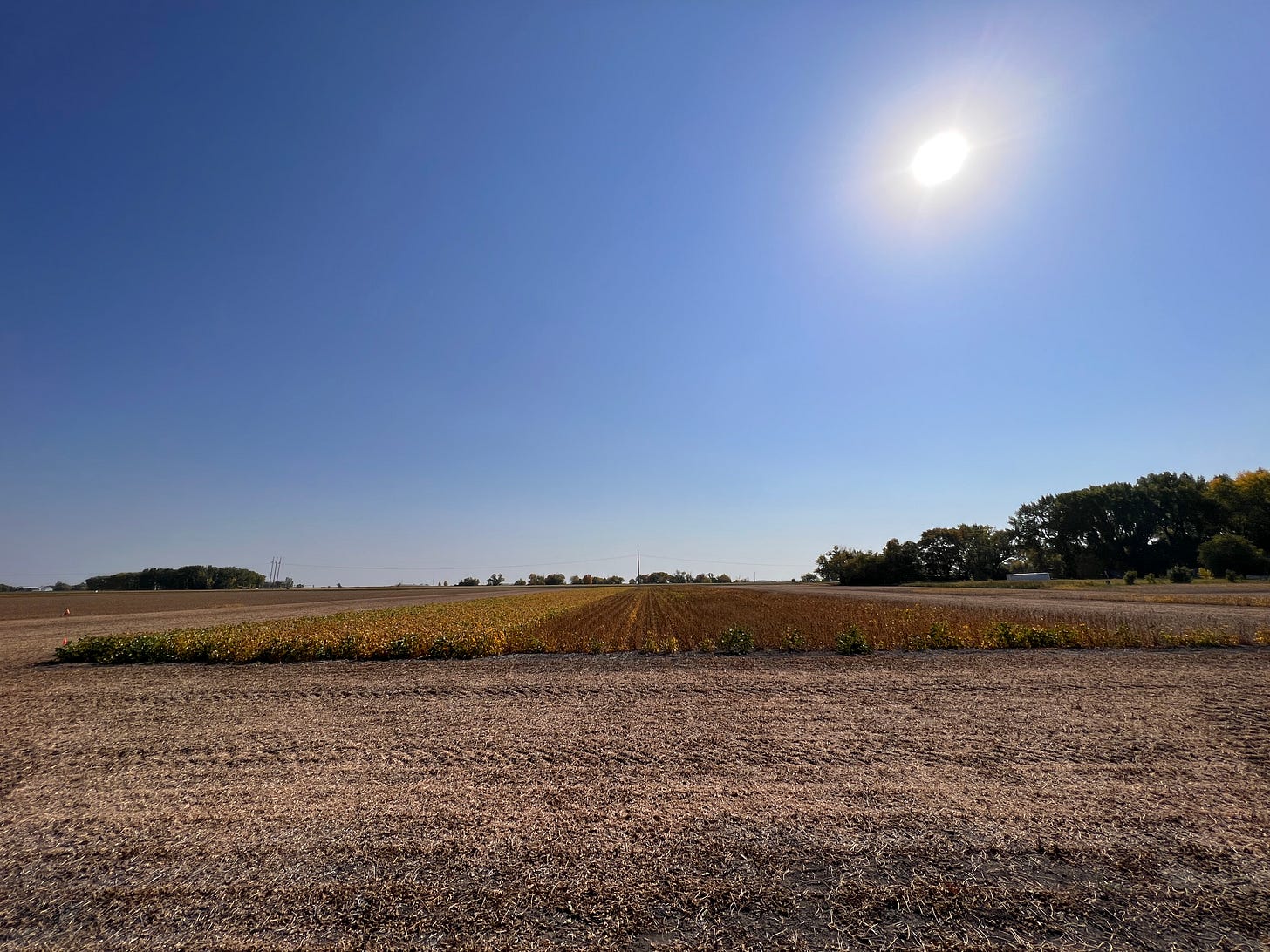Just like hugs and dumb looks, Farming Full-Time is still free. Click the link below to get the FFT Newsletter delivered to your email inbox every week:
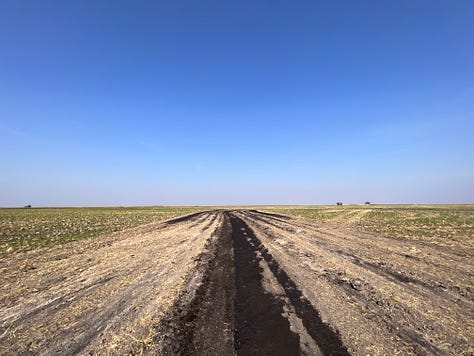


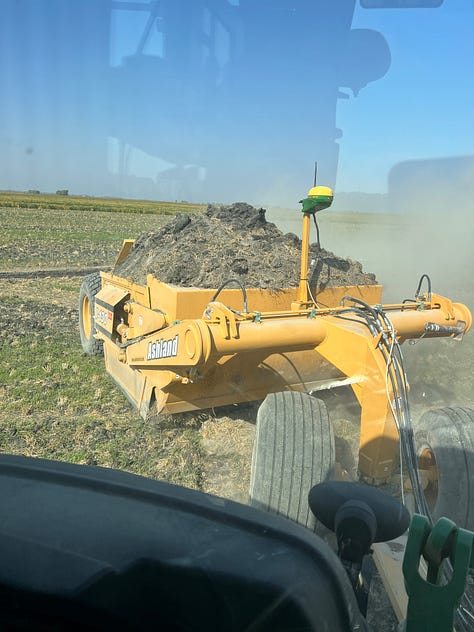
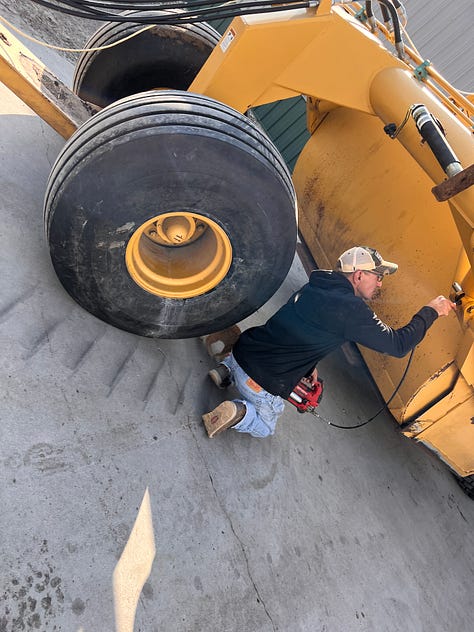
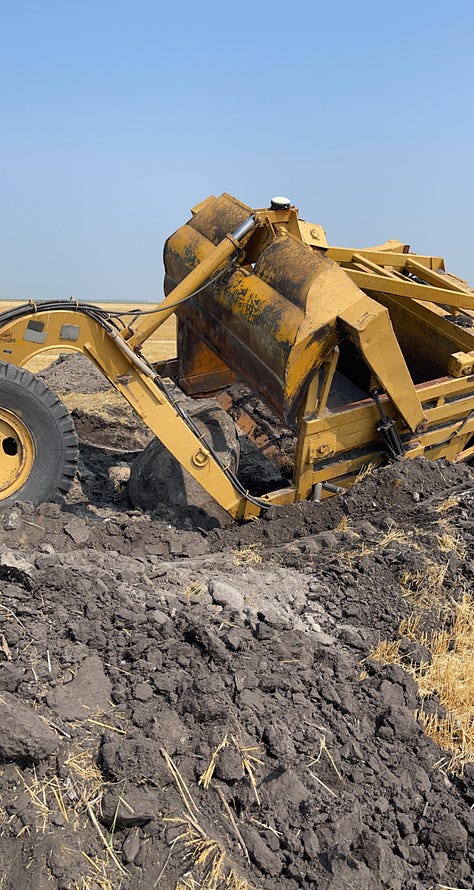


Drainage, Eli. Drainage!
It’s everybody’s favorite time of year.
The wheat has been gone for a while, and I’m sure many guys are half-done or better with their soybeans.
With the sugar beet campaign only a week away and corn that will want some attention soon, we’re trying to catch up on tillage work and tackle some other last-minute projects before the long days begin.
Cover your ears, kids. A dirty word is coming.
Scraping. Ditching. Draining the swamp.
It doesn’t matter what you call it in your area. It’s one of the farm's most important (arguably the best return on investment) jobs.
Sorry, guys. I’m sure I made some of you throw up in your mouth, but it’s one of those topics any farm newsletter worth its weight in sugar beets must cover.
We’ve got to talk about ditching.
2023 was one of the only years I can remember where having a well-drained field didn’t mean a hill of beans. Hardly any of us in the Red River Valley received a rain that tested the slope of our ditches.
There’s always a little bit of drowned-out crop somewhere—not the case this year. We didn’t have a single acre drunk on too much water in 2023.
I have never seen anything like it, and I don’t know about you, but I’m certainly not going to get used to it. We won’t be parking the scraper in the woods any time soon.
Scraping is a never-ending gig. There will always be a waterway needing cleaning, and there’s never a shortage of ditches that could use more back-sloping.
My Grandma always says that when you think your ditches have enough slope, go back and give an extra pass or two on each side.
Well, she didn’t - but these are the pressing items that would concern grandmothers in a perfect world.
Your combine operator will thank you when he doesn’t have to cut around a ditch because you were bored and went to watch Days of Our Lives instead of making the trench wide enough.
Draining fields properly takes time. Loads of it. It’s not for the weak or weary. Having the patience to drive in circles for an entire day to perfect one waterway is a rare quality.
2023 marks twenty-five years since I was first tasked with reshaping the landscape.
Jerry Seinfeld had just capped off his television career, Will Smith was Gettin’ Jiggy Wit It instead of slapping comedians, and the Sosa/McGwire home run chase was heating up.
Seems like yesterday.
I’ve come a long way from that first day when I was heave-crying to Dad because I couldn’t figure out how to stop killing the engine when dipping the blade far too deep in the dirt.
Hey, some of us are slow learners.
Nobody told me I didn’t have to cut the whole ditch in a single pass. Once you realize the best way to scrape is to pretend you’re slicing up a brick of government cheese, life gets much easier, and the tears dry up.
The tears came back with force later that day when I wrapped the power lines next to Highway Eleven around the scraper’s laser mast, dragging them out into the field and depriving the City of Drayton of their electric juice for a few hours.
It was a rough first day for a pubescent and emotional fourteen-year-old.
Here we are, a quarter-century and about six million yards of dirt later, and I’m about as close to expert-level scraper guy as it gets.
Funny how that works.
Repetition. Like golf and government cheese, you get a bit better with each slice.
There aren’t many things I recommend more than spending a couple-three hundred hours per fall cleaning out your field’s waterways, nor are there many things more satisfying than seeing the water flow to the culvert after the first gully-washer.
The massive return on investment is a bonus. All it takes is one wet spring or summer to pay for a decade of ditching.
What are you waiting for?
Make Grandma proud.
Get out there and move some dirt.
Soybean Diversity
How many different seed varieties are you planting every year?
Many farmers spread their seed purchases across several companies and suppliers to hedge their bets on the year. The thinking is that if one variety performs poorly, the others should take up the slack.
As a former day trader who has lost more than he’s won on concentrated bets, I can’t recommend this practice enough. Nothing is more intelligent than spreading your risk, but are you going far enough?
Moisture and timing are everything.
As we see this year with a .006 versus a .03, it can mean the difference between forty and sixty bushels per acre.
I’m no Good Will Hunting, but I reckon that’s a few bucks per acre.
We never know what Mother Nature is going to bring next year.
I’d love to plant the whole farm to this new .03 maturity bean that’s throwing our yield monitor for a loop this fall, but if there’s anything I’ve learned, no two years are alike. The rains could come at the wrong time and cause the .03 to fall flat next year.
I’ve seen it a hundred times.
Never go all-in on a seed variety, no matter how well it performed this year.
Spread out your seed risk.
Diversify your maturities.
Your wallet, wife, and banker will appreciate it.
Eighth-Inning Rains
I was growing concerned that I wouldn’t complete this week’s letter and release in time. Things have been busy between tillage, ditching, and trying to combine uneven soybeans.
Therefore, I didn’t mind waking up this morning to raindrops dribbling down the spouts to put the finishing touches on this edition.
That said, the timing of these rains could have been better. My sister will likely remind me why you don’t spend all summer crying for moisture.
Eventually, you’re going to get it.
You’d think I’d have learned my lesson after 2019, but, like most humans, my memory is short and selective.
For those with the stomach for it, here’s a reminder of how nasty things can get after a late-season hurricane:

Nutrien forecaster Eric Snodgrass and WDAY’s John Wheeler are telling us more rain will come this weekend. For the sake of us all, I hope the totals remain reasonable.
We’re late in the eighth inning with a two-run lead, but there are runners on the corners, and the cleanup hitter is approaching the plate.
Cross your fingers, pray for the bullpen to hold on, and strike this guy out.
Enjoy the weekend rain delay if you have one.
Rest up. You’re going to need it for the ninth.
Take care of yourselves. I’ll see you back here next week.






